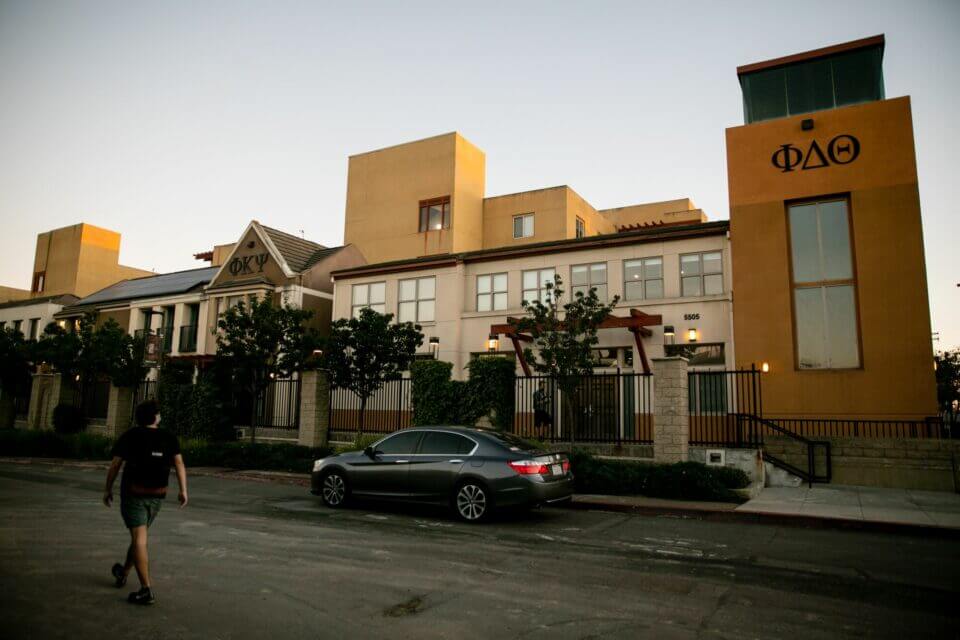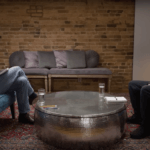
“They were given a choice to participate, and they ultimately decided it was worth risking their life, health, individuality, and future for a chance to be a part of a group of people who ultimately couldn’t care less about them.”
Benjamin Brennan was just an ordinary San Diego State University student pledging to become a member of the Kappa Sigma fraternity. However, one day in April of 2021, Brennan was told by fraternity members to consume 750 mL of hard liquor within 30 minutes and was given recreational drugs as well. Eventually, he was taken to a hospital. As he lay there in a coma and intubated, he fought for his life.
According to his family and lawyer, his life has been greatly altered even after his recovery, and he is now suing the fraternity and nine of its former members.
But it is not just Brennan’s life that has been altered by hazing.
Jordan Hankins; Stone Foltz; Max Gruver; Danny Santulli; George Desdunes; Armando Villa.
These are just a few of the names of young people tragically harmed by Greek life and hazing in recent years. However, when the press presents these stories, journalists typically explain these events in a black-and-white manner. The stories are often presented as a tale of villains and victims. However, as is often the cases, other dynamics are involved.
Personal Responsibility
I will first say that I cannot imagine the pain and suffering that the families of these young people have endured. Seeing one’s child, brother, or sister in a hospital bed at death’s door is awful, and having to bury that family member is even worse.
With that said, many in the media present those whose lives were altered by hazing as if they had nothing to do with the incident and were completely powerless the entire time. However, that is not typically the case. These young people strongly desired to become part of these organizations and were willing to go to great lengths to become members. As such, a major point that too often gets lost in the conversation is that of personal responsibility. When I read these stories, while my heart hurts, I am often befuddled at how anyone with a working brain, even as a young adult, can agree to consume copious amounts of poisonous substances and participate in such dangerous activities just to become a member of a club.
Going through school, former First Lady Nancy Reagan’s famous phrase “Just Say No” was drilled into my head and the heads of students around the country. We went through Red Ribbon Week every year in October. We heard lectures about peer pressure and the various ways to handle it. We would see alcohol commercials with each one saying at the bottom of the screen “Drink Responsibly.”
When I first read about Brennan’s story, I was shocked that he drank nearly a liter of Captain Morgan in half an hour. Even if it had been water instead of alcohol, he would still be participating in a very dangerous activity that could lead to water intoxication, a coma, and even death. Just ask ex-California State University, Chico student Matthew Carrington.
But to decide to drink 750 mL of hard liquor in 30 minutes is absolutely insane. At some point, the reasonable question “Why did you do that?” must be asked.
These individuals were not kidnapped in the middle of the night and held at gun or knife point. They were given a choice to participate, and they ultimately decided it was worth risking their life, health, individuality, and future for a chance to be a part of a group of people who ultimately couldn’t care less about them.
Brotherhood and Sisterhood
One of the many selling points of fraternities and sororities is the idea of “brotherhood” and “sisterhood.” As John Donne wrote centuries ago, “No man is an island.” In one’s life, it is certainly important to have friendship, camaraderie, and fellowship. It is even a biblical principle, as Psalm 133 makes clear.
With that said, the concept of being part of a group that actively seeks to hurt or humiliate a person is a major red flag. Those who seek to embarrass or excessively haze another are not brothers or sisters. They are not friends. These are people to be avoided at all costs.
We have seen great friendships throughout literature and film: Goose and Maverick in Top Gun; Sam and Frodo in J. R. R. Tolkien’s The Lord of The Rings; Elizabeth Bennet and Charlotte Lucas in Jane Austen’s 1813 novel Pride and Prejudice; and David and Jonathan in 1 Samuel. These friendships involved love, sacrifice, honesty, and loyalty. Even if conflict arose, these friends would go to great lengths to help one another. In the gospel of John 15:13, Christ says that there is no greater love than a person sacrificing his own life for his friends.
In many of these tragedies, these “brothers” or “sisters” are not much help and even delay in calling for medical assistance. In the case of Pennsylvania State University student Tim Piazza, there was a 12-hour delay before an ambulance was called for him after his first fall. (He later died.)
It is clear that people who wait half a day to call an ambulance while one is dying are not his friends—let alone his brothers.
What my fellow young people should be doing is building networks with genuine people who want nothing but the best for them. They should be forging relationships with people who will push them to be better and hold them accountable. Those are the qualities one’s friends, brothers, and sisters should possess.
Conclusion
To be clear, I am not accusing all chapters of all fraternities and sororities of hazing their incoming pledges. I also am not asserting that these organizations should be banned.
I simply write this because when it comes to the conversation surrounding hazing, it often revolves around litigation and zero-tolerance policies. But the idea of personal responsibility, brotherhood, sisterhood, and friendship are rarely mentioned. If these young people had just said “No” and instead built strong bonds with people who cared about them, these stories would not be in the news in the first place. And, more importantly, these young people would still be able to enjoy their promising lives.
Solomon Green is a writer and podcaster. He was an intern at Merion West in 2019. Now, he is working to help people end addiction to pornography.










